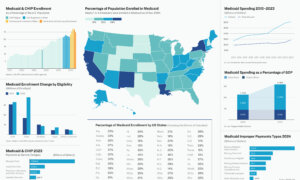In a busy campus cafeteria where everyone is debating the addition of more plant-based options, would you speak up if your opinion were different? Recent research suggests that many people might choose to stay quiet, and some may even act against their own beliefs.
The study highlights a common issue: Those holding minority views often engage in “self-silencing” during group discussions. This behavior hinders open conversation and can lead people to behave in ways that contradict their values. Mental health experts warn that this pattern of self-silencing can have serious long-term effects on one’s well-being.
Suppression of Minority Opinions
The
study, recently published in the Journal of Environmental Psychology, involved about 250 students surveyed on their opinions of the school’s policy to increase more plant-based food options on campus. These students were then paired up in a conversation to see whether they would share their real opinions with others.
The findings showed that students who were in the minority, meaning that they were not supportive of having more plant-based foods, tended to not share their real opinions. They were less likely to elaborate on their views, especially when talking with someone who supported the majority position.
Even when paired with people who shared their beliefs, they still tended to self-silence, albeit to a lesser degree.
The students in the study also often employed avoidance tactics, such as showing indifference or shifting the topic, leading to fewer unique arguments presented by those with minority views than by those holding majority views.
Self-silencing may also lead people to act against their own beliefs.
Participants completed a follow-up activity during which they could show their support for the university’s plant-based food policy by clicking on a mouse as fast as they could. Findings showed that those who opposed the plant-based foods policy clicked the mouse about as often as those who said they supported it, in opposition to their self-stated beliefs.
These outcomes highlight a trend: When minority views remain unvoiced, it fosters an environment where the prevailing opinion appears to dominate, which can create a cycle of silence.
Unexpressed Opinions Reinforce Majority Views
Overall, the study findings suggest that self-silencing can have concerning effects, Nicole Sintov, associate professor of behavior, decision making, and sustainability at The Ohio State University and study co-author, said in a
statement.
“It leads to a public perception that the minority viewpoint doesn’t exist—it is less important. It becomes this vicious cycle where people’s true thoughts aren’t expressed, and the public belief is the majority opinion is overwhelming and can’t be changed,” Sintov said.
“That’s especially true if those with the minority viewpoints are behaviorally going along with the majority. It is just more evidence that the majority opinion is dominant.”
According to Sintov, the findings call for people to become more aware of their own beliefs and how they express them, and those with minority views need to be willing to discuss their true beliefs, even if they feel uncomfortable.
Additionally, she emphasized that those in the majority need to be willing to hear the thoughts of the other side, even if they disagree with them.
“We need to be open to civil discourse in our society. It has to be a two-way street,” Sintov stated.
The Psychological Effects of Self-Silencing
Self-silencing takes a significant toll on mental health, Sanam Hafeez, a New York City-based neuropsychologist and director of Comprehend the Mind, told The Epoch Times.
People who regularly withhold their true thoughts to fit in experience stress and anxiety along with “isolated emotions,” she said. They disconnect from their authentic selves.
The consequences can be severe and long-lasting.
“Long-term self-silencing gradually diminishes self-esteem while leading to depression and inner conflict that erodes personal identity,” Hafeez said. “When people act against their own principles, it can wear down their psychological resilience, which results in difficulties maintaining relationships and self-expression across life situations.”
Suppressed emotions can manifest physically and are often referred to as psychosomatic symptoms. Suppressing emotions often keeps the body in a state of chronic stress, which can lead to headaches, back pain, neck pain, and other musculoskeletal issues, as well as stomach aches and other digestive problems.
Hafeez recommended particular strategies for those who struggle with expressing their minority viewpoints in conversations. She advocates developing the psychological resilience necessary to express dissenting opinions constructively instead of shying away from tough conversations.
Techniques for Authentic Self-Expression
According to Hafeez, people who find it hard to share minority viewpoints benefit from cultivating self-awareness and determination in their beliefs.
“Building comfort with expressing opinions involves practicing articulation within safe spaces such as conversations with trusted friends or family members,” she said.
She particularly recommended that people frame discussions to promote openness by using “I” statements, which help convey personal opinions without causing confrontation.
Additionally, Hafeez emphasizes the importance of active listening.
“When people develop active listening abilities, they create dialogues encouraging others to listen and think before responding,” Hafeez noted. “Support from like-minded communities and mentors can offer validation and solidarity, making it simpler to share alternative perspectives in bigger groups.”
Through the gradual application of these practices, people can “overcome [their] fears and develop authentic expression skills for various social interactions,” Hafeez said.















